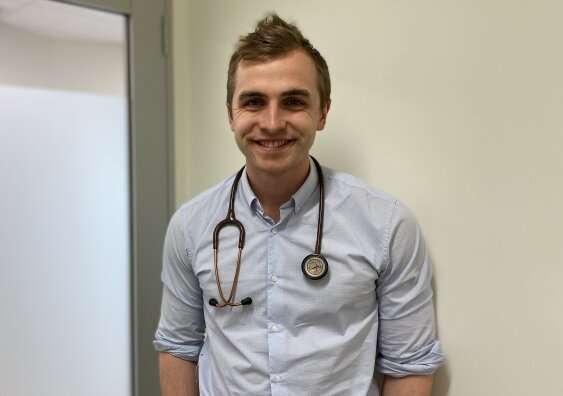Rural practice linked to junior doctors being more satisfied

A comprehensive study has found junior doctors in regional and rural Australia are more likely to be satisfied than their metropolitan counterparts.
Junior doctors in regional and rural Australia are more likely to be satisfied than their metropolitan counterparts, with better work-life balance and more varied work the main positive factors at play, new research by UNSW medical researchers has shown.
The paper—published today in the Australian Journal of Rural Health—is one of the largest studies ever on junior doctor satisfaction, and the first national one. It sheds light on how recruitment strategies may bring more junior doctors to rural areas.
Dr. Matthew Lennon, a junior doctor in Wagga Wagga and the lead author of the study, said the findings were important, given the ongoing shortage of doctors in rural and remote areas.
“Junior doctors are in a critical period where they are deciding on a route of specialty training and forming lifelong relationships—so knowing what they’re happy and unhappy about at that stage in their career could help inform recruitment strategies,” Dr. Lennon said.
Using the Medicine in Australia: Balancing Life and Employment (MABEL) survey, the researchers examined 4581 doctors in their first four years after graduation.
“Overall work satisfaction was high for both metropolitan and rural junior doctors—sitting at about 85% – but once we controlled for other factors, we found that rural doctors were 54% more likely to be satisfied,” Dr. Lennon said.
“Compared to their metropolitan counterparts, rural doctors were more positive about their work-life balance, the amount of variety in their work, access to leave and leisure activities, and personal study time.
“An important part of this we think is that in smaller hospitals, junior doctors often work directly with supervising consultants and get the opportunity to perform tasks under supervision which are often reserved for specialist trainees at other hospitals.”
Metropolitan junior doctors, on the other hand, were more satisfied with the network of doctors supporting them and the opportunities for family.
Dr. Lennon said the findings were surprising.
“That rural junior doctors are more positive about lifestyle and access to leisure activities was not something we were anticipating. We think that it relates to the reduced travel times, costs of living and the simpler management structures seen in smaller towns and health services.”
Dr. Lennon can relate to the findings on a personal level—he grew up in Sydney and trained in Wagga.
“I found the community, the hospital and the lifestyle wonderful—in fact, I loved it so much that I wanted to come back as a doctor. I think that many doctors and medical students aren’t aware of great options of working in rural areas, so to attract early career doctors we should emphasize the benefits of rural work.
Source: Read Full Article


